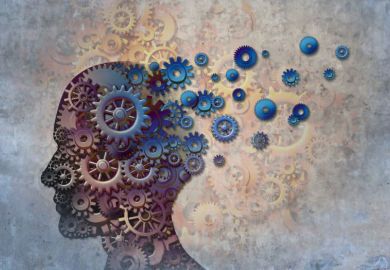Student mental health: there’s an app for that. But might such tools do more harm than good?
As concern about the well-being of students grows, and as waiting lists for counselling and support expand, university websites increasingly direct students – and, in some cases, staff – to online support resources, which include a number of apps, among them Headspace and Calm.
There has also been a proliferation of apps designed specifically for students, such as Fika, Emoodji and Enlitened. Although some bespoke student apps are available only to those enrolled at a university, most mental health apps can be accessed freely through iTunes or Google Play.
However, academics have warned that many such apps are based on limited scientific evidence. And with universities striving to demonstrate that they are acting on student mental health and with some software developers seeking to meet a growing demand, there is concern that students might be steered to an app that offers them incorrect “diagnoses” or inappropriate “therapy”.
A study published last month in NPJ Digital Medicine found that 47 of the 73 mental health apps it examined claimed effectiveness in diagnosing a mental health condition or in improving symptoms, mood or self-management. Only two, however, were able to cite evidence based on evaluation of the app itself, and only one could provide a citation to relevant scientific literature.
John Torous, one of the authors of the paper, told Times Higher Education that many app developers reported having used evidence-based therapies, such as cognitive behavioural therapy, in the design of their programs.
“The part that is left out is that just because something is based on evidence-based therapy that works in one setting, ie, face to face, doesn’t mean it’s going to work well when it’s delivered without any human support on a small smartphone screen,” said Dr Torous, director of the digital psychiatry division at Beth Israel Deaconess Medical Center, which is affiliated to Harvard Medical School.
Dame Til Wykes, professor of clinical psychology and rehabilitation at King’s College London, agreed. “It’s understandable to want to make use of digital technology, but we should only be using things that we know work,” she said. “A lot of these apps are produced and launched without proper evidence or peer-reviewed studies of their effectiveness.”
Some apps make claims about the percentage of users who report having benefited from their support, but Dame Til was unconvinced by these. “If we don’t have data from a controlled trial, it is reckless [to promote such apps] as it means we don’t know the harm,” Dame Til added.
In the UK, the NHS has a library for apps that meet its standards for safety, but there are very few mental health apps listed compared with what is available on app stores.
Although Fika, which offers five-minute “emotional exercises”, is not based on peer-reviewed studies of its effectiveness, it has still managed to raise £800,000 in private funding. It claims to “combine the science” of therapies including positive psychology, cognitive behavioural therapy and mindfulness.
However, Nick Bennett, Fika’s founder, told THE that evidence mapping would be very important in the app’s development, and the developer has agreed partnerships with four universities – Coventry, Exeter, Lincoln and Manchester Metropolitan – for research projects that will include an examination of the app’s efficacy and are expected to be peer-reviewed.
This might be a small sign of progress, but academics have also expressed concerns about what apps do with their users’ data.
The rights that app companies hold over data are “astonishing”, Dame Til said, but such information collection is key to their building a credible business case.
Many mental health apps skirt medical regulations about confidentiality by stating in their terms and conditions that they are in fact a “wellness” app.
A paper published last month in the BMJ, which looked at general health apps, found that 79 per cent of the sampled apps shared users’ data.
Despite their concerns, academics do not dismiss the potential value of mental health apps.
“If there are apps that have robust evidence that they work, if the data are encrypted and if the university is willing to pay for its students to use it, then it could be incredibly useful. However, it is crucial to recognise the importance of talking to a professional in person. That is also what students are telling us,” Dame Til said.
Dr Torous agreed. “Students are at an age when they are at a higher risk for things such as depression or anxiety, their brain is still developing, and they are thrust into a high-pressure environment,” he said.
“Apps can be most useful to augment care, but what is best for [students] is professional help…You need to understand your diagnosis: what if you have a thyroid problem that’s making you feel depressed? No amount of apps or therapy will fix a thyroid condition.”
POSTSCRIPT:
Print headline: Student mental health apps give some a worried feeling
Register to continue
Why register?
- Registration is free and only takes a moment
- Once registered, you can read 3 articles a month
- Sign up for our newsletter
Subscribe
Or subscribe for unlimited access to:
- Unlimited access to news, views, insights & reviews
- Digital editions
- Digital access to THE’s university and college rankings analysis
Already registered or a current subscriber?








